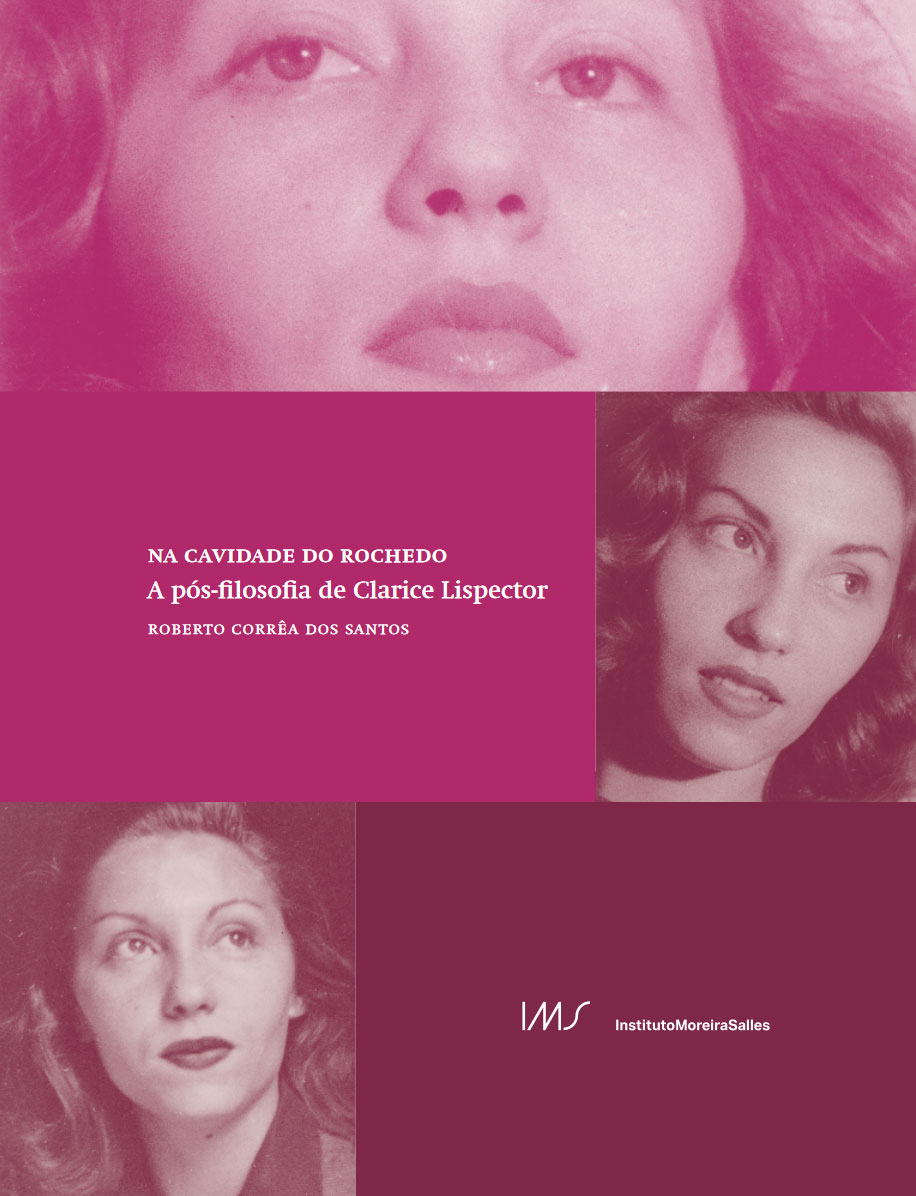, Comments on In the Cavity of the Rock: The Post-Philosophy of Clarice Lispector. IMS Clarice Lispector, 2013. Disponível em: https://site.claricelispector.ims.com.br/en/2013/03/06/comentario-sobre-na-cavidade-do-rochedo-a-pos-filosofia-de-clarice-lispector/. Acesso em: 26 July 2024.
Here are one hundred and eleven pages of enjoyment of Clarice Lispector’s works. Unlike the kind of literary criticism of her work that we are accustomed to reading, Roberto Corrêa dos Santos, in his broad interpretation spread over twelve chapters, some extensive, others just two pages – but fortunately converting the reading into hours of reflection–, guides the reader on a flight free of dangers, ensuring total freedom without requiring the reader to hold on to hard theoretical supports. Instead he constructs, with smooth but underscored movements, readings and de-readings, illuminating several of Clarice’s texts with integrity and grandeur. To his credit he does not suffocate the texts.
Proceeding through the lyricism Roberto Corrêa dos Santos uses in his presentation, the more attentive reader feels the pleasurable need to stop, breathe, and – if so inclined – underline the text due to the intensity of the readings. It is not difficult to agree with the author who, in glossing over just one title or another in Clarice’s production, manages to not repeat what at this point is already known from what literary criticism of the past few decades has endeavored to examine. Roberto goes to the boundary of what Clarice’s texts suggest, guarding himself from possible mistakes influenced by exaggerated affirmations. Clarice’s own writing, for example, is effectively an instruction manual for “detaching” from norms and stereotypes. It is this writing that institutes a new knowledge that for us cannot – must not – be, according to the author, “civilized” or “deprived of the happy anguish it causes.”
Upon reading Na cavidade do rochedo (In the Cavity of the Rock: The Post-Philosophy of Clarice Lispector), we are promptly placed in the condition of explorers-readers. Between enchantment and astonishment, we are ready to face Clarice’s cave—or work—, which by its very nature is ferocious, slippery, and does not allow itself to be taken in its entirety.
Na cavidade do rochedo: a pós-filosofia de Clarice Lispector (In the Cavity of the Rock: The Post-Philosophy of Clarice Lispector) is a study published exclusively in electronic format and available for download here.







